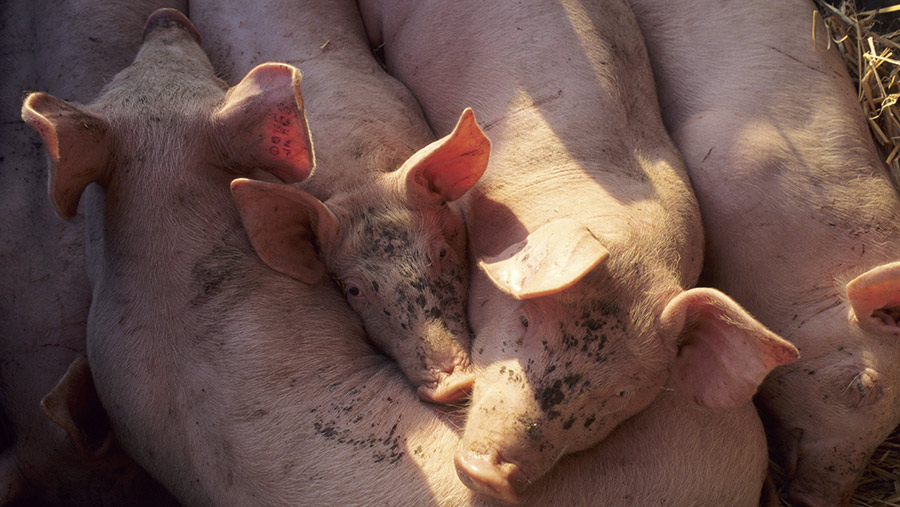Calls for colistin antibiotics ban as resistance found on three pig farms
 Pigs on a German Farm © Jochen Tack/ imageBROKER/REX/Shutterstock
Pigs on a German Farm © Jochen Tack/ imageBROKER/REX/Shutterstock Routine preventative use of the antibiotic colistin, which is known as the antibiotic of last resort, should be banned, according to animal health and welfare coalition, Alliance to Save our Antibiotics.
This follows the discovery of resistant bacteria in E coli on three pig farms in the UK.
The discovery by the Animal Plant Health Agency, alongside the unearthing by Public Health England of 15 resistant bacteria samples in human infections, relating to salmonella and Ecoli, follows cases reported in China, Africa and other parts of Europe.
The DNA that gives bacteria resistance to colistin – the mcr-1 gene – can spread rapidly between species. The concern is that resistance will now find its way into other superbugs to create infections that doctors will be unable to treat.
Differing opinions
Industry body, the Responsible Use of Medicines in Agriculture (Ruma), announced voluntary restrictions on the use of colistin in UK earlier this month.
John Fitzgerald, secretary-general, said Ruma had consulted with veterinary sectors that used the antibiotic and they had agreed to restrict their use while the risks were being assessed.
But the Alliance to Save our Antibiotics, which in a Freedom of Information request had found that 837kg of colistin had been sold to British farms in 2014, said urgent action was needed now.
Usage across Europe
In Europe, nearly 550t have been used on farms, with Spain, Italy and Germany all using more than 100t of the antibiotic.
Spokesman Colin Nunan said: “We need the government, the European Commission and regulatory bodies like the Veterinary Medicines Directorate (VMD) to respond urgently.
“The routine preventative use in farming of colistin and all antibiotics important in human medicine needs to be banned immediately.”
UK situation
Colistin usage in animals in the UK is low – it makes up less than 0.2% of UK antibiotic use in livestock and like all veterinary antibiotics it us only available from veterinary surgeons, who are committed to making animal health and welfare their first concern, while prescribing responsibly.
Defra while, usage of the antibiotic on farms was low, surveillance measures would be stepped up in the light of the findings.
The National Office of Animal Health (Noah) said experts at the European Medicines Agency would be carrying out a revised risk assessment on the use of colistin in animals.
Dawn Howard, Noah chief executive, told Farmers Weekly, that treating animals when needed was a legal responsibility: “In the UK, consumers have come to encourage and expect high standards of animal welfare.
“Noah does not support the consideration of a ban until the experts from the regulatory bodies have reviewed the evidence and are in a position to make informed recommendations,” she added.
